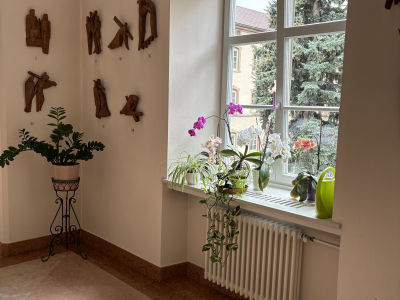Artificial Intelligence

Large vision-language models (LVLMs) suffer from hallucination, generating responses that apparently contradict to the image content occasionally. The key problem lies in its weak ability to comprehend detailed content in multi-modal contexts, which can be mainly attributed its training data. The vision instruction dataset primarily focuses on global description that are highly relevant to the image, with few samples containing image details.
- Categories:
 161 Views
161 ViewsThis dataset is a valuable resource for those working on virtually rendered scenes and includes comprehensive ground truth data. It features a wide array of images generated under various lighting conditions, specifically designed for tasks such as illumination estimation, scene relighting, and object insertion. Each image is accompanied by precise ground truth information, providing an accurate reference for evaluating and improving algorithms. The dataset includes scenes illuminated by different light sources and angles, ensuring a rich set of examples for realistic lighting simulations.
- Categories:
 241 Views
241 ViewsThis dataset is a valuable resource for those working on daylight illumination-related projects. It includes a comprehensive collection of images captured under various daylight conditions. These images can be used for tasks such as illumination estimation, scene relighting, and object insertion. The dataset features scenes illuminated by different intensities and angles of daylight, providing a rich set of examples for realistic daylight simulation.
- Categories:
 184 Views
184 ViewsThis dataset is a valuable resource for researchers and developers working on various applications related to illumination and visual effects. It contains a diverse collection of images that feature complex lighting scenarios, making it particularly useful for tasks such as illumination estimation, scene relighting, and object insertion. The images are carefully curated to include both single-color and multicolor lighting conditions, providing a wide range of examples for different lighting effects.
- Categories:
 257 Views
257 Views
As shown in the figure 1, the NLP market is projected to grow from USD 31.76 billion in 2024 to USD 92.99 billion by 2029. This growth is driven by advances in deep learning and algorithms, increased digitization, and the integration of NLP with machine learning and deep learning. Key factors contributing to this expansion include the increasing use of NLP in healthcare and call centers, the demand for advanced text analytics, and growing machine-to-machine technology.
- Categories:
 89 Views
89 ViewsA dataset incldes 841 nodes. This dataset includes 841 nodes in a mobile social network, used to simulate the process of users being interconnected and influencing each other within the mobile social network. Each row of data consists of two numbers, representing the current location of the node. In the process of information dissemination, each user is a node, influenced by their neighboring nodes and also influencing those neighbors in return.
- Categories:
 370 Views
370 ViewsThe dataset created focuses on the Pakistan Military by collecting five types of entities from Wikipedia: weapons, ranks, dates, operations, and locations. An open-source NER annotator was utilized for annotation, ensuring accurate labeling of data. Post-annotation, the data underwent cleaning and balancing processes. The final dataset comprises 660 neutral and 660 anti-military sentiment samples, totaling 1320 samples. This balanced dataset serves as a valuable resource for sentiment analysis, providing insights into public sentiment regarding military-related topics.
- Categories:
 458 Views
458 ViewsAccording to US NOAA, unexploded ordnances (UXO) are ”explosive weapons such as bombs, bullets, shells, grenades, mines, etc. that did not explode when they were employed and still pose a risk of detonation”. UXOs are among the most dangerous, threats to human life, environment and wildlife protection as well as economic development. The risks associated with UXOs do not discriminate based on age, gender, or occupation, posing a danger to anyone unfortunate enough to encounter them.
- Categories:
 1565 Views
1565 Views
The massive damage caused by COVID-19 worldwide over the past two years has highlighted the importance of predicting the spread of infectious diseases. Therefore, with advances in deep learning, numerous and diverse methods have been considered for predicting the spread of infectious diseases. However, these studies have shown that the long-term prediction abilities of deep learning models are insufficient to predict the course and propagation of COVID-19 outbreaks.
- Categories:
 79 Views
79 ViewsThe cigarette packaging defect dataset consists of 18,862 images encompassing 26 types of defects. Each image has a resolution of 1600×1200. We utilized the LabelImg software package to annotate the images, assigning a bounding box and a class label to each defect. These annotations are saved in VOC format. All data will be made publicly available upon the acceptance of the paper. For further details, please contact the corresponding author.
- Categories:
 491 Views
491 Views





